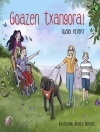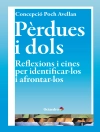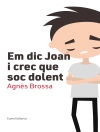A good book about how alternative therapies can help dyslexia. It mentions each therapy individually and explains what it is, how it works, how many sessions are needed, who will benefit, and if it can be done at home.’
– Education Otherwise
This comprehensive book offers clear and balanced information on a range of alternative therapies for individuals with dyslexia, dyscalculia, dyspraxia or ADHD.
The author provides an overview of each therapeutic option, method of use and case examples, covering nutritional supplements, massage, acupuncture and hypnotherapy, among others. She also includes contributions from experienced alternative therapists, offering an insider’s view of what works and what does not. Her objective approach will enable the reader to make an informed choice from among the many available options. A bibliography and a list of useful contacts are also provided.
This book is a key resource for anyone interested in exploring alternative therapy approaches to dyslexia and related difficulties, particularly for parents of people with dyslexia, dyslexics themselves and the professionals who work with them.
Tabela de Conteúdo
Introduction. 1. Alternative Therapies. 2. Identifying Learning Difficulties. 3. Hearing. 4. Bodyworks. 5. Developmental Delay. 6. Vision. 7. Nutrition and Health. 8. The Power of Touch. 9. Holistic Healing. 10. Therapies of the Future. 11. Bioenergy Therapies. 12. Stress Management. Conclusion. Resources. Useful Addresses. List of Contributors. Index.
Sobre o autor
Maria Chivers is the Founder of the Swindon Dyslexia Centre. She writes and lectures on dyslexia and her book Practical Strategies for Living with Dyslexia was published by Jessica Kingsley Publishers in 2001. She has two sons, both of whom have dyslexia. Maria lives in Wiltshire, UK.












